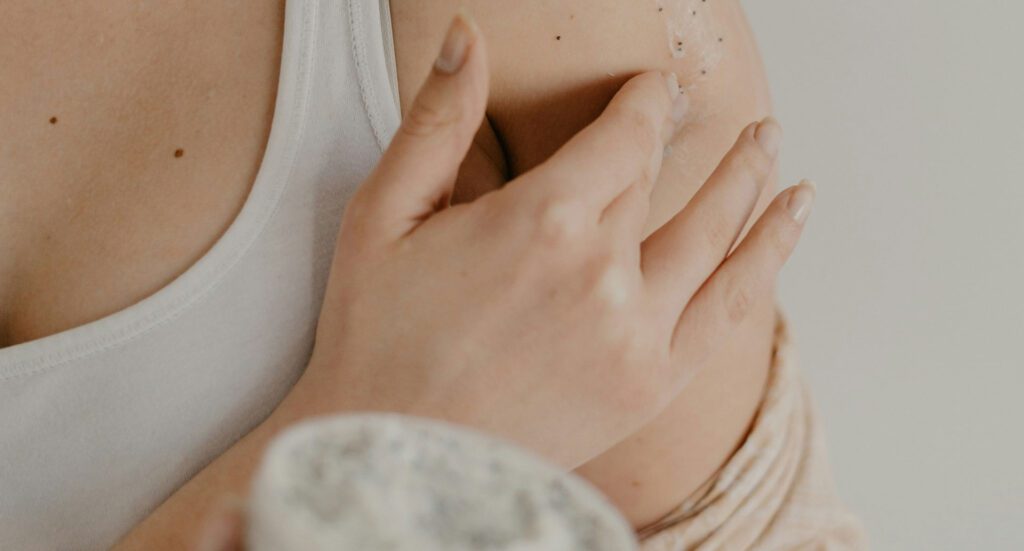Itchy Skin. What is it?
What is it?
Itchy skin, medically known as pruritus, has emerged as a prevalent and distressing symptom among individuals experiencing Long COVID. While primarily recognized as a respiratory illness, COVID-19’s lingering effects often extend beyond the respiratory system, manifesting in various dermatological symptoms, including persistent itching. Itchy skin in Long COVID can significantly impact an individual’s quality of life, leading to discomfort, sleep disturbances, and psychological distress.
Typical Symptoms
Itchy skin in Long COVID typically presents as a persistent sensation of irritation, tingling, or crawling on the skin’s surface. Affected individuals may experience generalized itching or localized itchiness in specific areas of the body. Additionally, accompanying symptoms such as dryness, redness, or rash formation may exacerbate the discomfort associated with itchy skin. The unpredictable nature of itching episodes can further exacerbate the distress experienced by individuals with Long COVID.
Who Gets It?
Itchy skin in Long COVID can affect individuals of all ages and backgrounds, irrespective of their previous health status or COVID-19 severity during the acute phase. However, certain factors such as pre-existing skin conditions, allergic tendencies, or immune system dysregulation may increase the likelihood of developing persistent itching during the recovery phase. Furthermore, prolonged hospitalization, medications, or medical interventions received during the acute illness may contribute to skin dryness and sensitivity, exacerbating the propensity for itching in Long COVID patients.
Key Points
- Itchy skin is a common and distressing symptom experienced by individuals with Long COVID, impacting their physical comfort and emotional well-being.
- The underlying mechanisms contributing to itching in Long COVID may involve immune system dysregulation, inflammatory processes, neurogenic factors, and skin barrier dysfunction.
- Addressing itchy skin in Long COVID requires a multifaceted approach that combines symptomatic relief with strategies to address underlying skin conditions and immune dysregulation.
By implementing targeted interventions to alleviate itching, address underlying skin conditions, and promote overall well-being, individuals can effectively manage this distressing symptom and improve their quality of life during the recovery process.
Long Covid The Answers
Relief:
- Topical Treatments: Apply moisturizers, emollients, or soothing creams containing ingredients such as colloidal oatmeal, ceramides, or calamine to hydrate the skin, alleviate dryness, and relieve itching.
- Avoid Irritants: Identify and avoid potential triggers or irritants that may exacerbate itching, such as harsh soaps, fragrances, tight-fitting clothing, or environmental allergens.
- Cool Compresses: Apply cool, damp compresses or take lukewarm baths with oatmeal or baking soda to soothe irritated skin and reduce itching sensations.
- Antihistamines: Over-the-counter or prescription antihistamine medications can help alleviate itching by blocking histamine receptors and reducing allergic reactions in the skin.
- Stress Management: Practice stress-reduction techniques such as meditation, deep breathing exercises, or yoga to minimize psychological distress and mitigate the exacerbation of itching episodes.
Credible sources of information:
